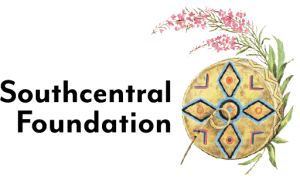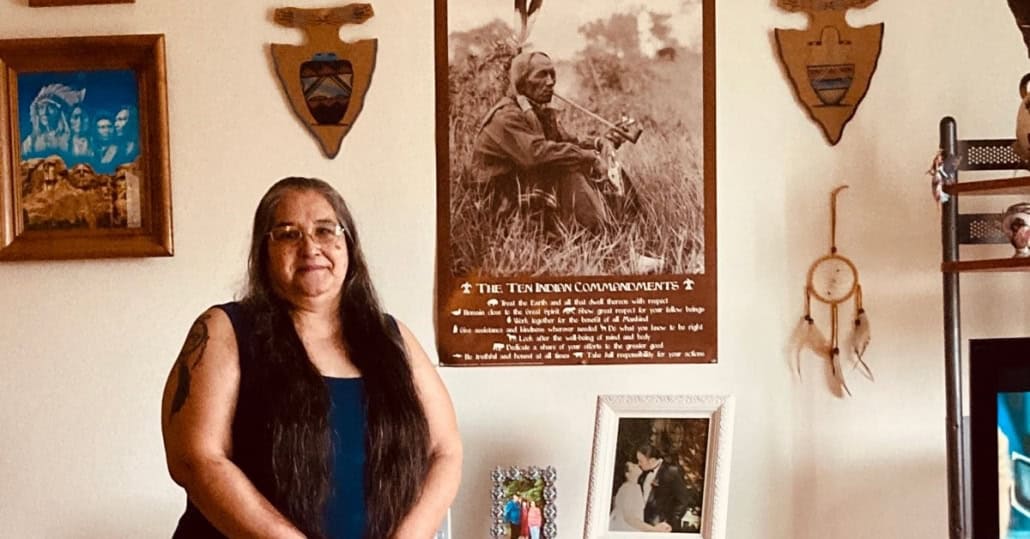Quit Tobacco Today for Better Health Outcomes
By Public Relations Specialist Connie Irrigoo
Choosing to quit tobacco is one of the best choices you can make for your overall health. Many people like customer-owner Karen Stephan have quit, and so can you. Keep in mind that quitting tobacco is a process. It may take some people several tries before they quit completely, others may quit on their first try. Every step toward quitting is a success.
You can learn the skills needed to quit tobacco for life. Southcentral Foundation tobacco educators can provide you with the tools and resources to help you be successful. If you have any questions, talk to your health care provider or a tobacco educator at SCF.
Stephan is originally from the Colorado Indian Tribe in Parker, Arizona; she lives in Anchorage with her husband, Ray. She remembered seeing and reading information about the Quit Tobacco program at an annual SCF Gathering. Stephan later learned that she had to quit tobacco to have knee replacement surgery.
“I called [SCF] Health Education to help me quit tobacco before surgery to replace my knee,” said Stephan. “Health Education set me up with gum and patches; in 49 years, I never tried to quit smoking. I had to have my knee replaced, so I gave it a try.”
Today, Stephan is nearly a year tobacco-free. She encourages others to try, even if they are unsure whether they will be able to quit. Stephan noticed that she initially gained weight but has since lost it. Since Stephan has quit smoking food tastes better, she can smell better, and pain from the surgery and rheumatoid arthritis has subsided. She no longer needs her inhalers, and her wheezing has stopped. Stephan attributes all this to quitting tobacco.
Quitting smoking greatly reduces many health risks, including the risk of oral cancer. People who use tobacco are at a higher risk of being diagnosed with oral cancer. Men in particular are twice more likely to have oral cancer than women, and Alaska Native people are nearly one-and-a-half times more likely to be diagnosed with oral cancer.
The American Dental Association recommends checking your mouth regularly for any lumps or sores if you are at increased risk. Schedule routine annual dental exams, talk with your primary care provider, or call a tobacco cessation specialist to discuss how SCF can help you make healthier choices.
Schedule a routine dental exam (when operations return to normal in SCF Dental), at (907) 729-2000, or call SCF Health Education to join a virtual tobacco cessation learning circle for Alaska Native and American Indian people in the Anchorage Service Unit. The tobacco cessation program offers one-on-one counseling, follow-up services, group counseling, and access to nicotine replacement therapy.
For more information or to schedule an appointment, call SCF Health Education at 907-729-2689 or the Benteh Nuutah Valley Native Primary Care Center Wellness Center at (907) 631-7630.



